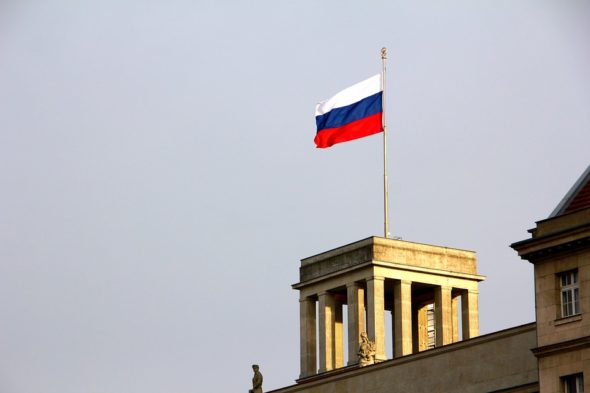The sixth sanctions package may be the most severe one and become a watershed moment. The European Commission has reached for the big guns against Russia. If they do not work, nothing will – writes Mariusz Marszałkowski, editor BiznesAlert.pl.
The European Commission has proposed to the member states the sixth package of sanctions against Russia for its aggression in Ukraine. In addition to the financial sanctions (the disconnection of a growing number of Russian banks from SWIFT, including the largest one – Sberbank), the most attention-grabbing, but also the most serious element of this package, are sanctions on the Russian energy sector, and, in particular, on the oil and fuel industry.
The planned restrictions are expected to have two facets, which is why they have the potential to inflict the most damage on Russia. The first is the already well-known and widely commented on plan for all EU member states to phase out Russian oil. The Commission assumes that within six months the EU countries will stop importing oil and by the end of the year, also oil products from Russia. The EC is currently in negotiations with some EU countries on temporary exemptions from giving up Russian fossil fuels. These are Hungary, the Czech Republic and Slovakia. These countries have asked the EC for more time to move away from oil from Russia, citing problems related to infrastructure challenges.
According to the negotiations, Hungary and Slovakia will be able to receive Russian oil until the end of 2024, while the Czech Republic until June 2024. These countries will not be able to resell the purchased oil to other entities.
The second blow to Russian oil is something that has not received such media coverage, although it is of colossal importance for any attempts at replacing European clients in other parts of the world. Namely, the EC proposes to impose sanctions on entities providing services „directly or indirectly, technical assistance, brokering services, financing or financial assistance, or any other services, related to the transport, including through ship-to-ship transfers, to third countries of crude oil and petroleum products which originate in Russia or have been exported from Russia.” In addition, sanctions are to be imposed on the insurance and reinsurance of vessels transporting Russian oil.
In practice these two elements exclude the possibility of export by sea from export terminals on the Baltic Sea and the Black Sea. Even if there is a ship that will want to transport the fuel (e.g. an entity on which sanctions have been already imposed), the vessel will not be allowed to pass through straits or dock at ports. Importantly, ship-to-ship transfers at sea are also to be banned. This tactic was used by the Iranians to bypass sanctions, to do that, they would turn off the AIS identification system and then move the oil to a different tanker. This made it difficult to track the vessels that were actually carrying the prohibited cargo.
I have previously written about the importance of offshore terminals for Russia here. Russia has only two oil pipeline connections – the Druzhba pipe that goes to Europe and the WSTO pipe with China. Other customers, including India, receive the oil by sea. If the European sanctions on shipping that moves Russian fuels enter into force, the country will not have an alternative, and the remaining export to China will not compensate for the losses caused by the EU embargo. The Russians can still try to export oil by rail, but this solution is inefficient, cost- and time-wise, and will not solve the problem of lack of sea exports. In addition, a large proportion of railway tankers is engaged in the transport of fuel for Russian troops fighting in Ukraine, which prevents them from participating in regular export.
The EU sanctions have already severely undermined the standing of the Russian shipping giant Sovcomflot. This company owned more than 120 tankers of various class and type that were used to transport oil, LNG, LPG and other oil products. Due to EU sanctions imposed on financial institutions, which by May 15 have to completely withdraw from contracts with Russian entities, Sovcomflot has to sell more than 40 vessels to pay its obligations. If the EC sanctions come into force, the Russian giant will share the fate of another once great operator of a large fleet of Iranian tankers – the National Iranian Tanker Company, which, due to Western sanctions, ceased to count in the industry of tanker operators.
The ban on the provision of insurance services for the transport of Russian oil will work the same. An uninsured vessel will not be allowed into most ports in the world. Of course, Chinese insurers may lend a helping hand, and their policy will cover the entrance to the local ports, but it is doubtful that it is respected in other countries of the world, especially in the West.
The sixth package of sanctions may indeed be the most difficult from the perspective of the Russian economy. Cutting Russia off from its main customers for oil products and crude oil, while blocking exports of these products to other countries, can be deadly for Russia. Hence the very nervous comments made by Russian analysts and politicians. The Russians will be forced to significantly reduce oil production, which will also affect the entire Russian oil sector, and its several hundred thousand jobs.
It is worth cheering for the European Commission to reach a compromise as soon as possible, which would allow the introduction of the toughest package of sanctions against Russia to date.









